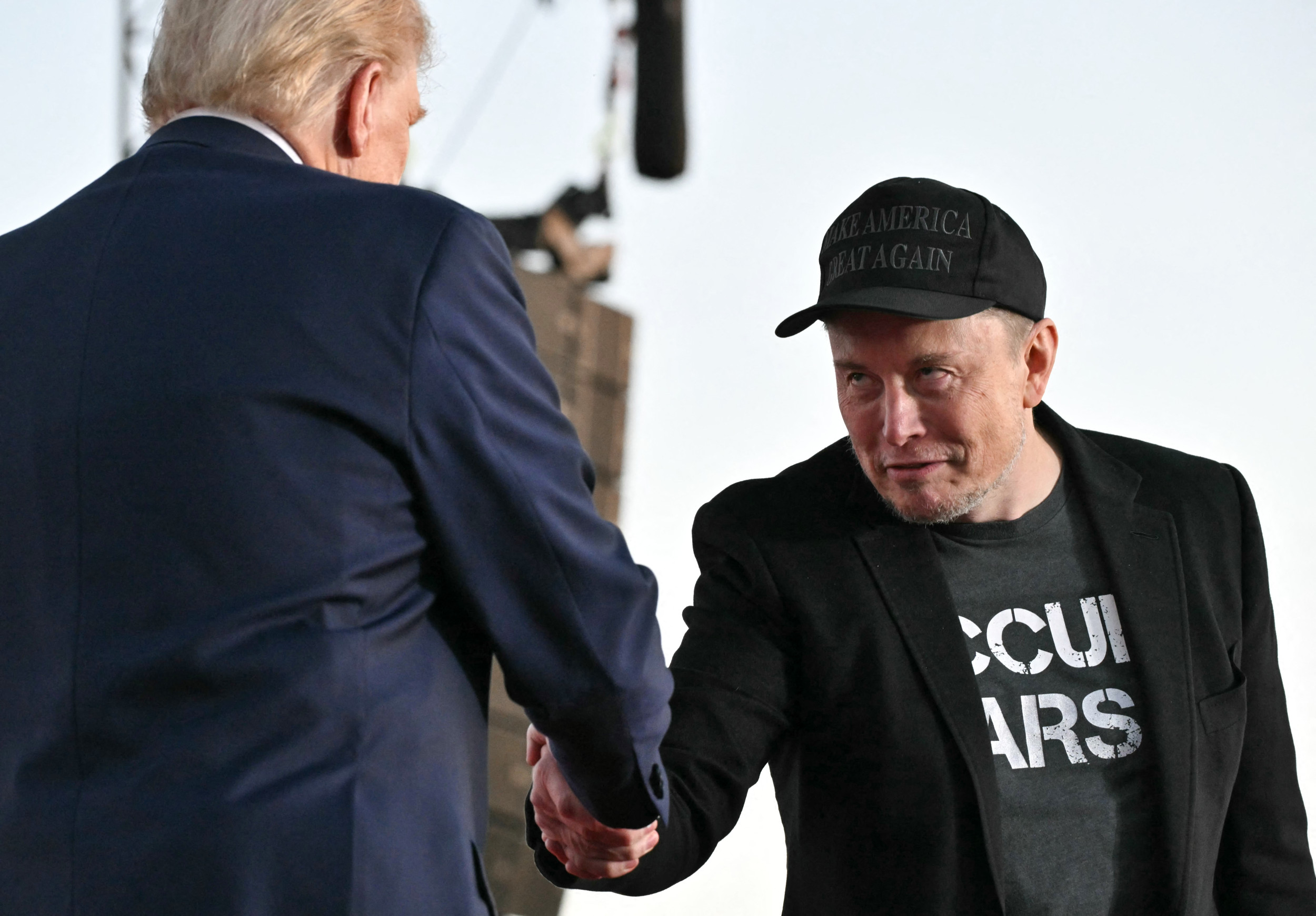After three years at Apple as the vice president of inclusion and diversity, Christie Smith joined Accenture in 2021 as a practice lead over talent and organizational strategy groups. She left Accenture after a couple of years to retire but admits that she has "failed miserably" at retirement.
Smith's newly released book, Essential: How Distributed Teams, Generative AI, and Global Shifts Are Creating a New Human-Powered Leadership, is meant to be a guide for human-centric leadership in an era of automation and rising complexity. In an interview with Newsweek, Smith details what she sees as an employee engagement crisis, an assertion backed up by recent Gallup data. She also shared her thoughts on the future of DEI initiatives, the culture shift in Big Tech, and the future of HR and talent strategy.
This interview was edited for clarity and length.
Newsweek: What motivated you to write this book after your time at Apple and Accenture?
Christie Smith: To really examine what have been the major shifts in our economies globally. It's a little bit of a history lesson to where we find ourselves, which is a really unique era, with the complexities that leaders are facing. With technology, generative AI in particular, when you look at the skills scarcity that exists, and the half-life shortening in terms of what skills leaders need in their organizations, you look at employee engagement being at all-time lows, costing us $8.8 trillion a year, at the rising silent pandemic of mental health coupled with war, with the divisions that are created and the polarization of thought, not only in this country, but globally, leaders are being faced with things they never had to be faced with before. It's really a unique time in history, and the requirements of leaders have changed. That's why I embarked on writing this book.

How have CEOs evolved in their approach to talent over the last few years?
Talent has always been at the top of the CEO agenda. Because of the innovations that have occurred in terms of technology and skill scarcity, and the war for talent that McKinsey wrote about in the 1990s, talent has always been top of mind for leaders. What has shifted dramatically in the narrative is we've gone from talent acquisition to talent access. How do I access the right skills? Do I access those in full-time employees or fractional employees? The thinking of how to get those skills into my workplace has changed dramatically.
I think the second thing that has changed dramatically is that business leaders are no longer—because of the sociopolitical and economic conditions—just the fiduciaries of their businesses. They are global citizens. They're not private leaders anymore.
We are looking to our leaders to fill a gap of leadership and to the values of our communities, DEI, immigration. We're looking to private sector leaders to help solve. That is a dramatic shift. Geopolitical issues have come to the forefront of their minds because it's impacting the people in their organizations.
How are all of these changes impacting heads of HR?
I think technology has helped move HR leaders from transactional to more strategists, and in some ways, the really good HR leaders are like futurists, really trying to understand the conditions from a sociopolitical and economic standpoint, and considering how to access new markets and talent globally to make sure that we are meeting growth numbers.
The role of the CHRO has changed dramatically, from managing those transactional capabilities, to strategist, operator, business leader, sitting truly at the right hand of the business leaders to try to figure out how they run their businesses and where they're going to get the talent to do that.
Who we're appointing to the CHRO roles has also changed dramatically. We are appointing and moving business leaders into the CHRO role who have run divisions, who have run P&Ls, who have run major development of product or service, in order to have that broader experience of the talent of the business, of the core of what is going to be needed, the implications of technology, and that kind of global operations capability.
What about the HR function more broadly?
The need for career HR people to upskill themselves is becoming ever more necessary. They need to become experts in technology and how it impacts operations, and how you look at each country and the complexities within that country, the talent pools within those countries, the access to it, the understanding of the legalities and how shifting policy is impacting it.
We need to give rotations of HR professionals through the business, not just through the HR roles of compensation benefits, talent. We need to expand the role of the HR leader and expose them to much more of the business.
We also need the growing role of the talent officer, not just the CHRO, but the talent officer, which has become immensely critical because of the complexity of the workforce and how you fill those obligations.
One other area that I think is not solely the responsibility necessarily of the CHRO but they will be heavily relied upon, is employee engagement. Employee engagement is costing us trillions of dollars; 25 percent of individuals feel that their leaders are engaged at work. One in five people feel lonely at work in their office. These aren't remote workers.
With the rise of mental health issues employees are facing, just 32 percent of employees globally say that they trust their senior leaders. These are all things that the CHRO and HR function has to be engaged in to solve: trust and engagement. These are two enormous pressures in our organizations today.
It's the CEO's responsibility, let me just be clear, to solve for these things, but they will heavily rely on their CHRO.
Why do you think engagement has reached all-time lows?
I think it is the lack of investment in education for employees to do their jobs, or to upskill them or reskill them. Also, the behaviors of CEOs not living up to the purpose of their organizations and, frankly, disenfranchising much of their workforce. If you look at the most recent press of [Facebook CEO] Mark Zuckerberg, talking about the masculine workforce, it's things like that that leads to a lot of mistrust and this notion of the bro culture. I think it's rhetoric, plus lack of investment and courage.
It's also lack of meaningful work, that when I come to work that I'm actually doing work that's tied to the purpose of the organization, into the values that the organization espouses on the walls of the institutions. I think that people have a lot more line of sight to that, and they're not going to work for companies where their insides don't match their outsides.

As a former DEI leader at Apple, what has it been like to see this backlash over the last few years for these kinds of efforts? We've also seen companies announce a decommitment from DEI over the last few months.
I think it's incredibly shortsighted. I think it lacks courage, and I think it's going to hurt the competitive nature of these organizations. The organizations that have taken a stance to say that they are going to continue their DEI efforts, those companies that are really saying, "Nope, not getting rid of this, we're not listening to the activists. We are going to absolutely live to these values that we know have made us better employers," They will have access to more talent. They'll have access to more skills, and they'll have access to more customers as a result of it.
I understand why companies are having to, from a legal standpoint, navigate this current administration in the U.S. However, the economic costs to taking this kind of position and not being transparent about the value of DEI is going to lead to further disengagement, lack of the right skills and capabilities—it's going to lead to a lack of trust in our organizations and leaders. These things have a value associated with them, and that value is going to impact greatly. It may not be tomorrow, but it will impact the longevity and sustainability of that company to grow.
I really feel for the folks in those organizations who really value and have been committed to DEI. I'm not talking about the officers. I'm talking about leaders, who now are scared to talk about their commitment.
How can Amazon or Meta be hurt by perception battles in the labor market when they are so successful and have long been considered leading employers with smart leadership strategies?
I take nothing away from those gentlemen in terms of the businesses and what they've created. That's taken hard work, that's taken commitment, that's taken innovation and ingenuity, all of those things. And, bravo, they've created whole different segments of our economy and opportunities for people to have careers and for the economy to grow.
I think you separate the personas of those individuals with the company today. People want the kind of growth and company innovation that these leaders have created, not necessarily the persona.
Some of the fastest growing segments of our economy are fractional workers and startups. I run a startup—do I want to see incredible growth? One hundred percent. That doesn't mean I have to be them or run a company like them. I think that there's a little bit of a disconnect in terms of how we create these hero leaders in those individuals, and actually how the company is being run, and what they're working on.
About the writer
Aman Kidwai is a Newsweek editor based in New Haven, Connecticut. His focus is reporting on the labor market, careers, ... Read more



